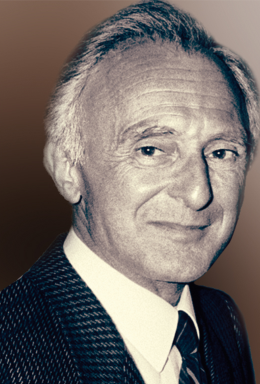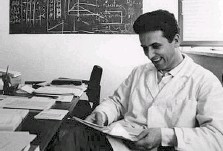Related Research Articles

Oral cancer, also known as mouth cancer, is a cancer of the lining of the lips, mouth, or upper throat. In the mouth, it most commonly starts as a painless white patch, that thickens, develops red patches, an ulcer, and continues to grow. When on the lips, it commonly looks like a persistent crusting ulcer that does not heal, and slowly grows. Other symptoms may include difficult or painful swallowing, new lumps or bumps in the neck, a swelling in the mouth, or a feeling of numbness in the mouth or lips.
The International Agency for Research on Cancer is an intergovernmental agency forming part of the World Health Organization of the United Nations. Its role is to conduct and coordinate research into the causes of cancer. It also collects and publishes surveillance data regarding the occurrence of cancer worldwide.

Alcohol and cancer have a complex relationship. Alcohol causes cancers of the oesophagus, liver, breast, colon, oral cavity, rectum, pharynx, and larynx, and probably causes cancers of the pancreas. Cancer risk, can occur even with light to moderate drinking. The more alcohol is consumed, the higher the cancer risk, and no amount can be considered completely safe. Alcoholic beverages were classified as a Group 1 carcinogen by the International Agency for Research on Cancer (IARC) in 1988. An estimated 3.6% of all cancer cases and 3.5% of cancer deaths worldwide are attributable to consumption of alcohol. 740,000 cases of cancer in 2020 or 4.1% of new cancer cases were attributed to alcohol.
The Nurses' Health Study is a series of prospective studies that examine epidemiology and the long-term effects of nutrition, hormones, environment, and nurses' work-life on health and disease development. The studies have been among the largest investigations into risk factors for major chronic diseases ever conducted. The Nurses' Health Studies have led to many insights on health and well-being, including cancer prevention, cardiovascular disease, and type 2 diabetes. They have included clinicians, epidemiologists, and statisticians at the Channing Laboratory, Harvard Medical School, Harvard School of Public Health, and several Harvard-affiliated hospitals, including Brigham and Women's Hospital, Dana–Farber Cancer Institute, Children's Hospital Boston, and Beth Israel Deaconess Medical Center.

Jan-Åke Gustafsson is a Swedish scientist and professor in Biology, Biochemistry and Medical Nutrition. When he decided to move to Houston, Texas, USA, in 2008, the State of Texas decided to give a major US $5.5 million research grant to the University of Houston, enabling the establishment of the Center of Nuclear Receptors and Cell Signaling under the leadership of Jan-Åke Gustafsson. The grant was announced at a February 5, 2009, press conference by Rick Perry, Governor of Texas and running for the Republican nomination for President of the United States in the 2012 presidential election.

Dimethisterone, formerly sold under the brand names Lutagan and Secrosteron among others, is a progestin medication which was used in birth control pills and in the treatment of gynecological disorders but is now no longer available. It was used both alone and in combination with an estrogen. It is taken by mouth.

Peter Boyle, FRSE FFPH FRCPS(Glas) FRCP(Edin) FMedSci, was a British epidemiologist. He conducted research on globalisation of cancer, where he showed the dramatic increase of cancer in low- and medium income countries.
Paolo Boffetta is an Italian epidemiologist. He is doing research on cancer and other chronic diseases, where he contributed to the understanding of the role of occupation, environment, alcohol, smoking and nutrition in disease development.
Philippe Autier is a Belgian epidemiologist. He is doing research on cancer, where he contributed to the understanding of the role of UV exposure in cancer development.
Clement Adebamowo is a Nigerian medical researcher and academic. Born in Lagos, Nigeria, Adebamowo is currently Director For Global Health Cancer Research, and a professor of Epidemiology & Public Health, at the University of Maryland School of Medicine. He is known for his work in cancer epidemiology, nutrition epidemiology, and research ethics, particularly in low resource and under-served in Africa.
Centro Studi GISED is an Italian research association with legal personality registered with no. 2096/2004 at the R.E.A. Register in Bergamo (Italy). It is a non-profit association established in 2002, and it develops research and educational programs with the aim of improving scientific knowledge, assistance and transparent and specific information to the public with regard to the main dermatological diseases.
Kurt Hellmann was a Bavarian clinical pharmacologist best known for his discovery of the biologic activity of two important drugs: Razoxane and Dexrazoxane.

Lorenzo (Renzo) Tomatis was an Italian physician and experimental oncologist who researched carcinogenesis and its primary prevention

Renato Talamini is an Italian Epidemiologist. He is known for his research on cancer etiology, to which he contributed by helping to define the role of tobacco, diet, viral infections, and other lifestyle factors in cancer development.
Elizabeth M. Ward is an American scientist and researcher for the American Cancer Society. She received her PhD in Epidemiology from the University of Pennsylvania. Ward serves as the National Vice President of Intramural Research for the American Cancer Society and Chair of the World Trade Center Health Program Scientific and Technical Advisory Committee. She has held many positions in various cancer research organizations including a position on the National Cancer Institute's Board of Scientific Counselors for Clinical Sciences and Epidemiology. In recognition for her prominent work in the medical research field, she has received two different awards: U.S. Public Health Service Meritorious Service Medal and the Calum S. Muir Memorial Award. Ward's work is heavily centered around "cancer disparities, cancer treatment and outcomes, cancer surveillance, occupational cancer and environmental cancer."

Silvio Garattini is an Italian scientist, pharmacology research scientist, physician and professor in chemotherapy and pharmacology and director of the Mario Negri Institute for Pharmacological Research.
Cornelia "Neli" Ulrich is executive director of the Comprehensive Cancer Center at Huntsman Cancer Institute (HCI), Jon M. and Karen Huntsman Presidential Professor in Cancer Research, and former Division Chief of Cancer Population Sciences in the Department of Population Health Sciences at the University of Utah. Ulrich oversees HCI's academic consortium of nearly 200 cancer research teams. She leads efforts to advance the impact of HCI's research in laboratory, clinical and population science, with the goal of improving cancer prevention and treatment. Prior to joining HCI, she was the director and department head of preventive oncology at the National Center of Tumor Diseases (NCT) and German Cancer Research Center (DKFZ) in Heidelberg. During this time, she also held a Professorship at the DKFZ and University of Heidelberg. From 1993 until 2009, Ulrich was a Member of the Fred Hutchinson Cancer Research Center and Professor in Epidemiology at the University of Washington in Seattle.
Adele Chandler Green is an Australian epidemiological senior scientist at the QIMR Berghofer Medical Research Institute in Brisbane and is the institute's Head of Cancer and Population Studies Group.
Tommaso A. Dragani is an Italian genetic epidemiologist whose research is focused on understanding the genetic control of complex phenotypes.

Elisabete Weiderpass-Vainio is a Brazilian cancer researcher who is Director of the International Agency for Research on Cancer, a part of the World Health Organization. Her research considers the epidemiology and prevention of cancer.
References
- ↑ La Vecchias entry at the homepage of the Institute
- ↑ short CV at UCL homepage Archived June 15, 2011, at the Wayback Machine
- ↑ Departmental homepage at Mario Negri Archived July 20, 2011, at the Wayback Machine
- ↑ La Vecchia at University of Lausanne homepage
- ↑ The International Academy of Oral Oncology Archived June 15, 2011, at the Wayback Machine
- ↑ List of Participants of the Monograph meeting Archived December 7, 2008, at the Wayback Machine
- ↑ Archives of Medical Science
- ↑ Current Cancer Therapy Reviews Archived June 16, 2010, at the Wayback Machine
- ↑ Open Cancer Journal Archived June 19, 2010, at the Wayback Machine
- ↑ Tumori Archived February 2, 2010, at the Wayback Machine
- ↑ vecchia,carlo&cmd=correctspelling Carlo La Vecchia's publications
- ↑ Description of La Vecchia at ISI [ dead link ]